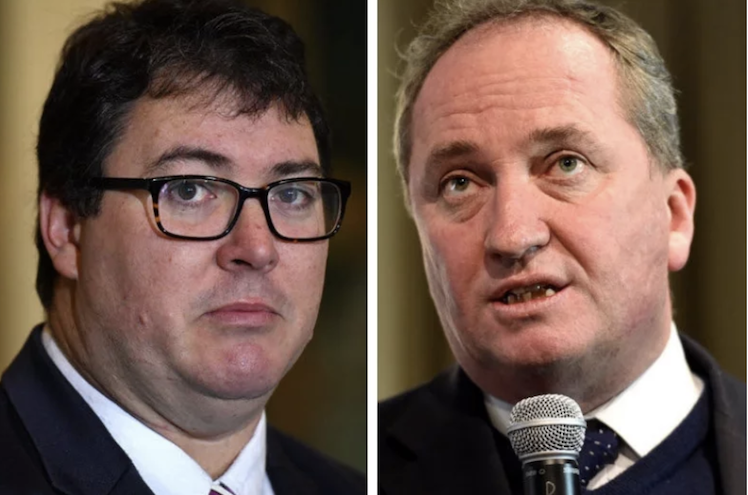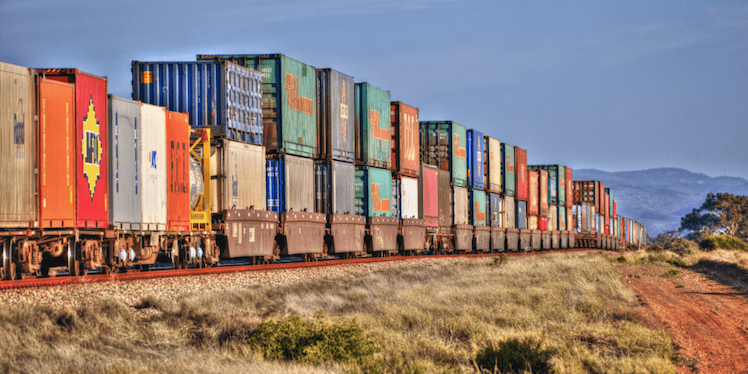Prime Minister Scott Morrison caved in to crossbench pressure this morning announcing a Commonwealth Integrity Commission. Labor’s presser followed shortly after with Labor Leader Bill Shorten claiming it was too little, too late, too limited in scope, too limited in power, exempted the current government from scrutiny and lacked transparency. Labor pledged in January to create a federal version of the Independent Commission Against Corruption (ICAC) if his party was elected next year. Why are the Nationals so afraid of an independent federal ICAC? Is it because of their long history of maladministration and rorting grants? Crikey’s Bernard Keane investigates.
"The Prime Minister needs to explain why he wants to set up a national anti-corruption commission which curiously exempts himself and the current government from any scrutiny by the new anti-corruption commission." OL @billshortenmp #auspol
— Political Alert (@political_alert) December 13, 2018
IT RECEIVED little attention due to the chaos within the government, but federal Nationals recently made some of the more extraordinary comments of recent political times.
They are opposed to an independent, federal anti-corruption body because they are terrified it will investigate the way in which they pork-barrel National electorates with government grants. Exercising ministerial discretion to ignore departmental advice in allocating grants, they fear, will be investigated as corruption. Barnaby Joyce warned that “every time you do something, it has the potential to call corruption – when it’s actually a political decision to bring some parity to people in regional areas.” Queensland MP George Christensen demanded infrastructure grants — worth billions of dollars a year across the Commonwealth via a variety of programs — be wholly exempted from the remit of an integrity body.

George Christensen and Barnaby Joyce
As the Nationals know perfectly well this is a furphy. The Independent Commission Against Corruption (ICAC) in NSW has been clear that ministers have the discretion to act contrary to departmental advice. This was confirmed by ICAC following its report into NSW Labor’s coal mine lease scandal. ICAC’s concern was about ministers pressuring officials to change their advice, not disagreeing with them. Indeed, the current ICAC regulations in NSW explicitly enshrine the right of ministers to disagree with their departments.
So why are the Nationals lying about this and using it as a figleaf for their terror of an integrity body?
An examination of the record of National Party rorting of grants shows why. The administration of the “Regional Partnerships Program” under the Howard government was one of that government’s worst scandals, with Nationals ministers favouring Coalition electorates, handing out money even when no applications had been received, or funding projects that failed even the very vague program criteria, or demanding bureaucrats stop assessing grant applications and simply hand out money. Nationals ministers under Tony Abbott also handed over $1.5 billion to Victoria’s then-Coalition government for the East-West Link project for political reasons and against departmental advice. Barnaby Joyce’s administration of the agriculture portfolio was marked by appalling scandals: the “tilting” of the Murray-Darling Basin Plan, the elimination of live export regulation for Coalition donors, the movement of the Australian Pesticides and Veterinary Medicines Authority to his own electorate, as well as the mismanagement of a rural research grants program and the maladministration of a concessional loans program.
Wherever you look, mismanagement — at best — follows in the wake of Nationals ministers. And that’s just from Australian National Audit Office (ANAO) reports and media inquiries. What would a federal ICAC, with subpoena powers, public hearings and the ability to demand cabinet papers and internal and personal correspondence, be able to find out?
Investigation: Barnaby’s gas bonanza and the pervading influence of the gas lobby
The biggest Nationals decision of recent years is the “Inland Rail”, which will cost at least $10 billion over a decade to build and which will, according to the government’s own documents, never come close to earning its cost back. The project — as long-time ardent advocate Everald Compton points out — will be the subject of bizarrely redundant sod-turning ceremony tomorrow involving Deputy Prime Minister Michael McCormack in his own electorate, despite no actual work for the project being done there. Infrastructure Australia was not permitted to do a proper cost-benefit analysis of the project. Despite this, the government has allocated its funding for it to the capital budget, despite very clear rules that only projects that will earn a substantial rate of return can be thus classified.
That, of course, is a mere accounting lie, not corruption, and one the Labor Party — which also supports this white elephant — is unlikely to ever straighten out. But at the time of the 2017 budget, there was a rumour that the Nationals had only agreed to support a $5.3 billion investment in a new Sydney airport at Badgerys Creek if an inland rail was funded, because of their anger that regional airlines would be forced to relocate to Badgerys Creek. There is also the issue of lobbying over the inland rail route and jobs for LNP mates. And the ANAO last year raised serious concerns about the procurement processes for the project conducted by the ARTC. In April this year, former Nationals leader and infrastructure minister Warren Truss took over as chair of ARTC.
With $10 billion worth of contracts to allocate, inland rail could be lucrative indeed for construction companies, consultants, lobbyists and legal firms. Continuing National Party involvement in its administration would, based on history, suggest it needs to be closely monitored in real time — rather than waiting for the ANAO, which can only retrospectively examine the allocation of taxpayer money. For confirmation we need go no further than the likes of Barnaby Joyce himself, whose abject fear of an integrity commission suggests potentially rewarding areas of investigation.

Bernard Keane
——————
Bernard Keane is Crikey’s political editor. Before that he was Crikey’s Canberra press gallery correspondent, covering politics, national security and economics.
You can follow Bernard on Twitter @BernardKeane. This article was republished with permission. You can view the original here. It was published yesterday before the Morrison Government’s announcement of a Commonwealth Integrity Commission.
Public support is vital so this website can continue to fund investigations and publish stories which speak truth to power. Please subscribe for the free newsletter, share stories on social media and, if you can afford it, tip in $5 a month.
Bernard Keane is Crikey’s political editor. Before that he was Crikey’s Canberra press gallery correspondent, covering politics, national security and economics.

